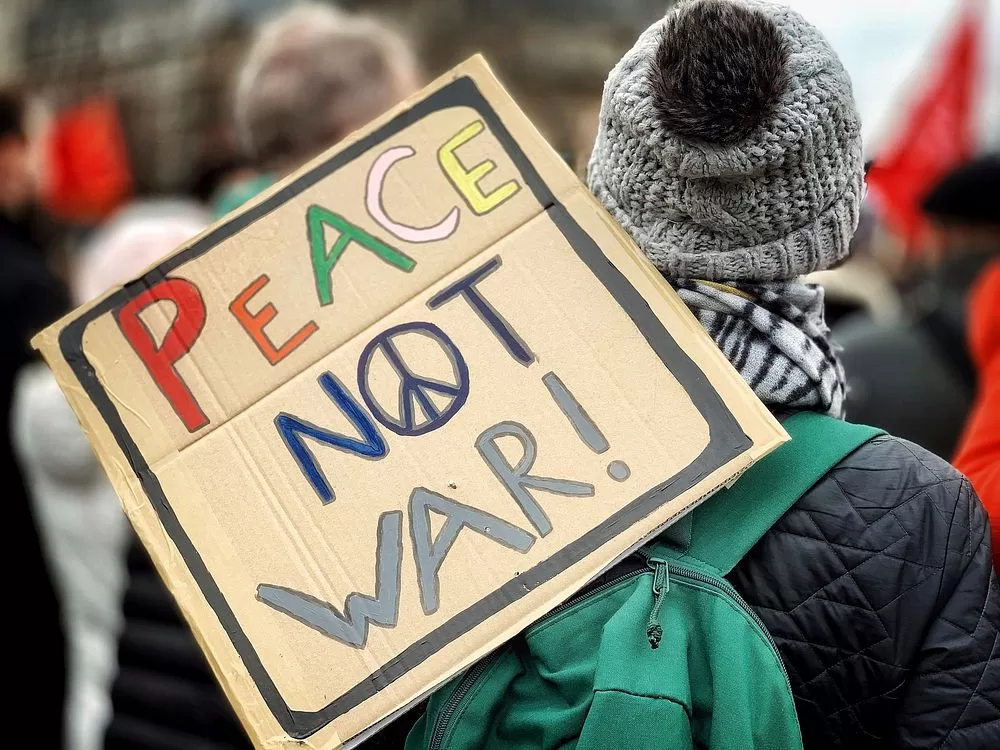By Sumaya Hadi and Farid Ullah Khan for Invisiblites
“War is father of all, and king of all; and some he manifested as gods, some as men; some he made slaves, some free”, declared Heraclitus. But what is War and the Institution of War? War is ” nothing but a duel on an extensive scale, an act of violence intended to compel our opponent to fulfil our will”, answers Clausewitz. In his work The Soldier and the State, Samuel Huntington defines war as a social institution, an instrument of policy, and a clash between major forces, adding that military institutions are shaped by the social, political, and economic structures of the societies they serve.”
The question then is the following: can war be avoided, or is it a permanent feature of human nature?
War – a creation of Nature
Clausewitz noted that the fundamental reality of war has always remained the same, but over time, its methods and tools have changed. Be it the Battle of Kadesh, the Trojan War, the Assyrian wars, the Greco-Persian war, the Peloponnesian war, the wars of Alexander the Great, Qin’s war of unification, and the Roman civil wars; all were caused by human nature and societal factors. History tells us that war is the cause of politics, and politics the means of distribution of power. War is always and everywhere possible because, politically, humans often become so consumed by fear, honor, and other factors that they resort to conflict.
War – a social creation
Many scholars and historians believe that war is an inevitable phenomenon. Realist thinkers view the absence of a central body as anarchy. Scholars like Hans Morgenthau and Kenneth Waltz emphasize that as long as this international ‘anarchy’ exists, so does the war. On the other hand, liberal scholars think that international cooperation, democracy, and institutions such as the United Nations can prevent war. They believe that if nations are linked by trade, diplomacy, and shared values, they will not go to war. War, therefore, they believe, is not a law of nature but a creation of shared beliefs and norms. Alexander Wendt posits that if states change their identities and relationships, peace can be the norm.
There hasn’t been any outright war between great powers since 1945. Historian John Lewis Gaddis termed it as “Long Peace”. It indicates, society is accountable for war, not human nature, and following the advice, the war is preventable. Steven Pinker cites diminished violence over the centuries because of causes such as literacy, the rule of law, diplomacy, and economic interdependence. The transformation of societal values has assisted in lowering the frequency and magnitude.
The Changing Face of Wars
Modern wars are ideological and cultural. As the era of Communism vs Capitalism ended, the world gradually moved to wars driven by Nationalism. Whatever the tagline is, wars are never divorced from competition over resources, injustices, inequality, and unsolved grievances.
Although numerous initiatives have been undertaken to decrease the frequency and devastation of war, several serious obstacles persist. Power politics, economic agendas, military-industrial lobbies, and entrenched ideologies keep war-making conditions intact. In addition, unequal development and global disparities foster discontent and instability, and thus, peace becomes harder to maintain.
Conclusion
War is a part of human history. Driven by fear, honor, and expectations, humans have always waged wars. War is an adaptive response that helped early humans to survive. War might be inevitable in society because conflicting interests and ideologies keep it ignited, but it can be minimized, even entirely prevented, by the role of institutions, trade, cooperation, literacy, and media. When society is fully aware of the human, economic, and environmental consequences of war, it more often than not shifts in favor of peace, forcing the agents of war to seek diplomatic solutions.
Sumaya Hadi and Farid Ullah Khan are undergraduate students at the International Relations Department, BUITEMS. Sumaya Hadi has interned at organizations such as ISPR. Farid Ullah Khan has written several articles on politics and society.
Photo Credits: Creative Commons

In my view, if war can be avoided, why do Pakistan and India repeatedly engage in conflict?